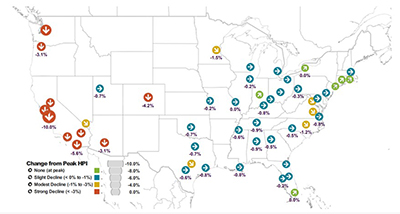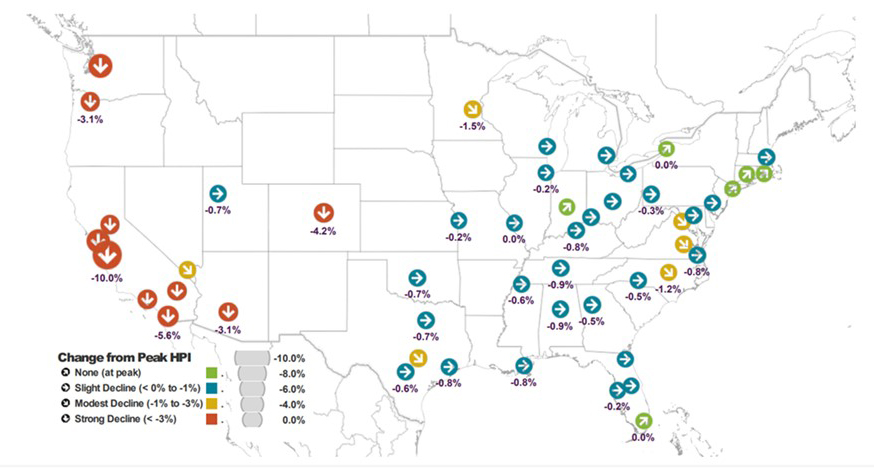
Black Knight: Tappable Equity Likely Peaked in Spring

Black Knight, Jacksonville, Fla., said falling home prices likely resulted in homeowners’ tappable equity peaking this past May.
The company’s monthly Mortgage Monitor reported annual home price growth shifted from deceleration to decline in July as the median home price fell 0.77% from June – the largest single-month decline since January 2011. More than 85% of the 50 largest U.S. markets are at least marginally off their peaks through July, with home prices down by more than 1% in a third, and more than one in 10 seeing prices fall by 4% or more.

As a result, tappable equity – the amount a homeowner can borrow against while keeping a 20% equity stake – hit its 10th consecutive record high in the second quarter at $11.5 trillion but appears to have peaked in May of this year.
“Annual home price appreciation still came in at over 14%, but in a market characterized by as much volatility and rapid change as today’s, such backward-looking metrics can be misleading as they can mask more current, pressing realities,” said Black Knight Data & Analytics President Ben Graboske. “Case in point – this cooling has been indicated in our home price data for several months now, and at an increasing pace. In January, prices rose at 28 times their normal monthly rate before slowing to five times average in February as interest rates began to tick up. Even May was still about two times normal, before June growth came in 70% below the long-run average. And all the while, annual appreciation continued to appear historically strong, showing double-digit growth month after month. Without timely, granular data, market-moving trends don’t become apparent until they’re right in front of you – like a sudden shift to the largest single-month decline in home prices in more than a decade.”
Graboske noted tappable equity is now down 5% in the past two months, setting up the third quarter to likely see the first quarterly decline in tappable equity since 2019. “Some of the nation’s most equity-rich markets have seen significant pullbacks, most notably among key West Coast metros,” he said.
The report said from April through July, San Jose lost 20% of its tappable equity; Seattle lost 18%; while San Diego (-14%), San Francisco (-14%) and Los Angeles (-10%) reported double-digit declines since April.
